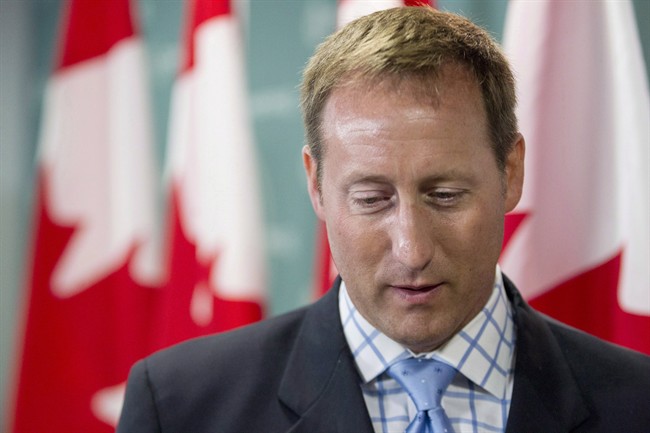OTTAWA – Criminals who are convicted of the worst crimes – such as multiple murders or sex assaults on children – could spend the rest of their lives behind bars, with no chance of parole, under planned federal legislation.

Justice Minister Peter MacKay elaborated Friday on the government’s plan, promised in this week’s throne speech, to lock some criminals up and throw away the key.
“We are talking about individuals who have committed the most heinous crimes serving an entire life in prison,” MacKay said during a conference call to discuss the Conservative government’s justice-related priorities.
WATCH: Throne speech: Harper’s new agenda
MacKay said the forthcoming provisions would be applied very narrowly.
“When I say the worst of the worst, the most violent, repeat offenders, we’re talking about multiple murders, multiple sexual assaults on the most vulnerable – our children,” he said. “We want to ensure that certain individuals capable and convicted of those offences will never be let out of prison.
“The primary responsibility of any government, first and foremost, is to protect the public. And we intend to amplify and buttress our ability to do that.”
Asked to cite the kind of offender the bill would cover, MacKay mentioned notorious sex killer Paul Bernardo as “an obvious example.”
Bernardo is classified as a “dangerous offender,” all but ensuring he is never set free.
WATCH: Opposition leaders slam government’s throne speech
MacKay acknowledged there are already tools – such as the dangerous offender designation – to keep some criminals from being released. The Conservative government has also scrapped the so-called faint-hope clause that allowed some inmates with life sentences to seek early parole.
Still, the government wants to ensure “there are no loopholes” in the law that criminals can exploit, MacKay said.
“This would both provide surety and public confidence, and that is the intent in bringing about further changes. I can’t really say more than that until we have the legislation before Parliament.”
The planned law will not make society any safer, but is sure to appeal to voters who demand harsher punishment for criminals, said Neil Boyd, a criminologist at Simon Fraser University in British Columbia.
“It’s all about catering to the fearful and the angry,” Boyd said. “It’s symbolic, it’s not going to have any effect on the crime rate.”
MacKay is quite right to say that some people should never be let out of jail, but there are already provisions in the law to ensure that, he added.
“Does anybody really think that Paul Bernardo will ever be let out of jail? The system works relatively well.”
Tougher penalties have consistently been a pillar of the Conservative approach to criminal justice since taking power in 2006, and the party has no time for those who question the rationale.
“That is in sharp contrast to the position that others have taken,” MacKay said.
“It flies directly in the face of the faint-hope clause, which in many cases revictimized victims of violent offenders, who were constantly reminded of their loss and dragged before a parole hearing.”
The government has also promised a victims bill of rights, stricter sentences for sex offenders and specific penalties for harming police service animals.



Comments